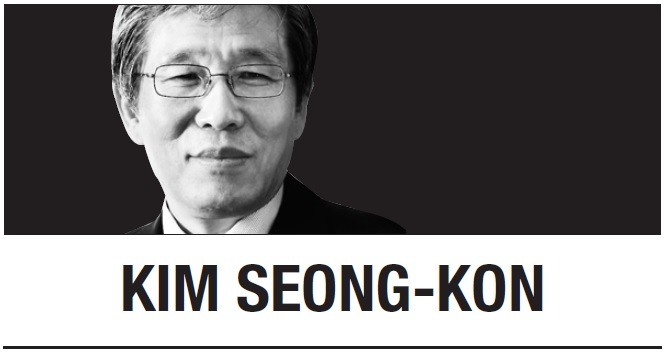
People say, “Things change.” However, “Some things never change,” as the maxim says. It is especially true in Korea.
For example, as the Yoon administration is about to launch, people begin talking about the urgency of “normalizing the abnormal” that the previous Moon administration has created for the past five years. They argue that Korea’s diplomacy with China and North Korea or with Japan and the US has been far from normal. They point out that the skyrocketing real estate prices and the notorious tax bomb are highly abnormal, too. They find our society, polarized between two antagonizing groups, abnormal, too. Here in Korea, the left wars with the right, socialists oppose capitalists, and radicals face off against conservatives.
Interestingly, “Normalizing the Abnormal” was one of the Park Geun-hye administration’s catchphrases. The Moon administration that ousted Park was no different; its catchphrase, “Purging the Accumulated Vices” was ultimately the same as “Normalizing the Abnormal.” In fact, virtually every Korean government in the past had a similar catchphrase. Even the Chun Doo-hwan administration’s catchphrase, “Building a Society of Justice,” implied that Korean society had been unjust and abnormal until now. Ironically, Chun took power by an unjust military coup.
The politicians in the Moon administration were student activists who fought against Chun’s right-wing military regime in the 1980s. Strangely, however, another catchphrase of the Moon administration, “Justice, Fairness and Equality,” evokes the Chun administration’s motto, “Building a Society of Justice.” Indeed, some things never seem to change in Korea.
Such a phenomenon implies that we have been living in an abnormal society from the beginning. This would be pathetic if it were true. Nevertheless, our governments have constantly called for “normalizing the abnormal.” We can only hope that the Yoon administration is the last one to attempt to accomplish the “mission impossible.” Ironically in English, “normalizing the abnormal” is a phrase that is often used to describe something bad nowadays. It means what is abnormal is now the “new normal” and everyone is constantly being forced to adjust to unpleasant conditions.
Another thing that never changes is our politicians’ promise to abolish strict, but hopelessly redundant, regulations and restrictions. Each government pledged to do it, but nothing has happened yet. People have complained that South Korea is the kingdom of regulations and restrictions that obstruct new ideas and innovations. Under the excuse of rules and regulations, our government officials have frequently discouraged those who have innovative ideas and adventurous spirits. It never seems to occur to them that “every rule is made to be broken,” or “there is no rule but the exceptions” as English maxims say.
In particular, Korean company executives have complained that regulations and restrictions are particularly severe for business. Indeed, critics have warned that Korea does not have a favorable environment for business. Consequently, foreign companies are reluctant to invest in Korea, or if they have a branch already, they want to withdraw them from Korea. GM Korea is one example. Of course, another compelling reason is the notoriously strong labor unions that ruthlessly manipulate and interfere with the management. Korean corporations, too, want to move out to other countries due to the annoying, stifling regulations and restrictions.
Such a phenomenon will eventually damage the Korean economy. Why our politicians and National Assembly representatives are reluctant to abolish unnecessary regulations and restrictions eludes us. Perhaps we are addicted to the rules and regulations, and thus do not want to live without them. We hope the Yoon administration will abolish all the worthless regulations and restrictions finally, so that our companies can freely expand their business, venture into a new sphere and prosper.
Other things that never seem to change in our society include the failure of anger management. It seems we are always angry with someone or something. Frequently, angry crowds gather at the Gwanghwamun Square to protest something. Originally, a candlelight vigil was meant for quietly mourning someone’s death. In Korea, however, it turns into a powerful rally, expressing the people’s anger. We are angry with other people. We are angry with ourselves, too.
In the American sci-fi film titled, “The Adam Project,” fighter pilot Adam Reed time travels from 2050 to 2022, where he meets his 12-year-old self, who is having a hard time due to the recent death of his father in a car accident. Finding his adult self angry with the father who abruptly left him, the young Adam points out, “I think it’s easier to be angry than it is to be sad. You made yourself hate him because it is easier than missing him.” The older Adam realizes the teen him is right. Like the older Adam, perhaps Korean people, too, choose to be angry because it is easier than to be sad.
We are now living in a digital world of the 21st century, where everything changes dazzlingly and radically. The maxim says, “Old habits die hard.” Nevertheless, we should change for the better.
Kim Seong-kon
Kim Seong-kon is a professor emeritus of English at Seoul National *University and a visiting scholar at Dartmouth College. The views expressed here are his own. -- Ed.








